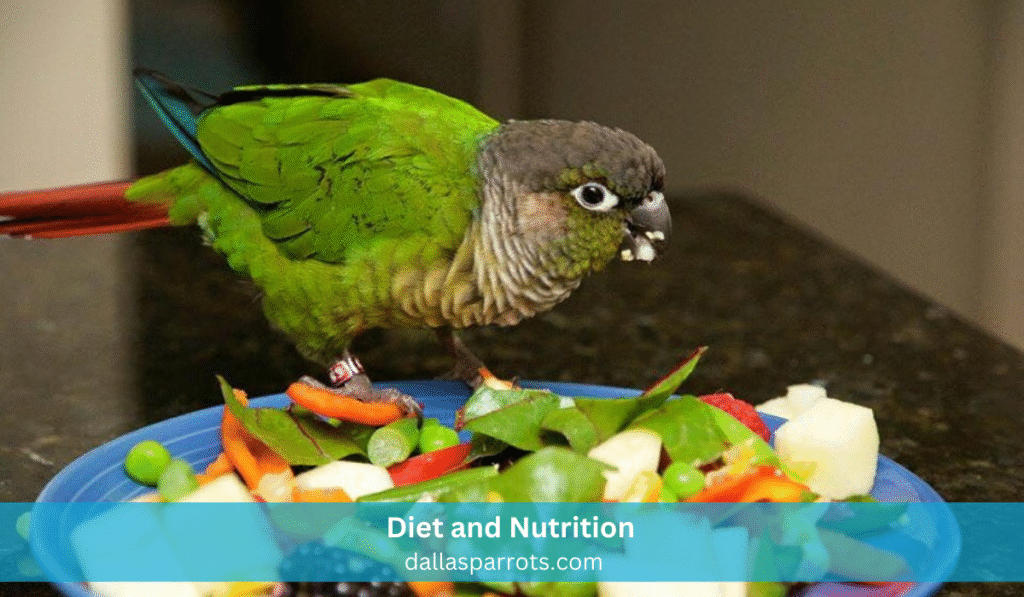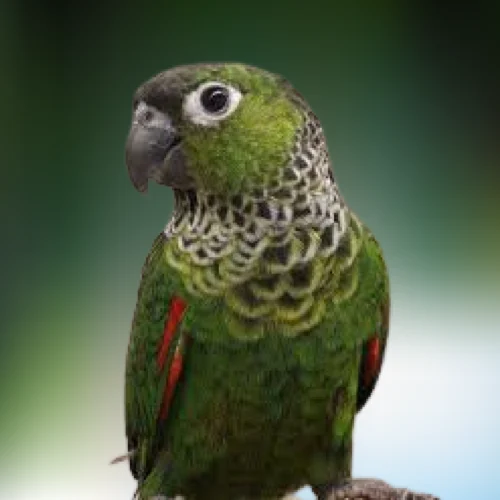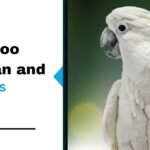

Black Capped Conure Lifespan, Care Tips & Complete Guide
The Black Capped Conure is a delightful little bird that truly captures hearts with its playful personality and vibrant colors. These small parrots are rapidly becoming favorites among bird enthusiasts, thanks to their affectionate nature and cleverness. Their charming antics and knack for mimicking sounds make them not just pets, but entertaining companions that bring joy to any home.

Why This Conure Is Gaining Popularity Among Bird Enthusiasts
Bird enthusiasts are finding themselves increasingly captivated by the Black Capped Conure, and it’s easy to see why. These sociable little creatures thrive on interaction, making them wonderful pets for both families and individuals. Their compact size and straightforward care needs also play a significant role in their rising popularity. Moreover, they are known for forming deep, affectionate bonds with their owners, which only adds to their charm and appeal.
Black Capped Conure Appearance and Personality
The Black Capped Conure is a small parrot with a distinctive black cap on its head, bright green feathers, and a splash of yellow on its belly. Their playful and curious nature makes them fun to be around. They are known for being friendly and affectionate, often seeking attention from their owners. These birds are also quite vocal, enjoying the opportunity to chatter and mimic sounds.
How the Black Capped Conure Differs from Other Conures
What sets the Black Capped Conure apart from other conure species is its unique combination of personality traits and physical characteristics. While many conures share similar playful behaviors, the Black Capped Conure tends to be more reserved and gentle. This makes them a great choice for first-time bird owners or families with children. Additionally, their striking appearance and engaging personality help them stand out in the world of pet birds.
Origin, Natural Habitat, and Conservation Status
The Black Capped Conure originates from the forests of South America, particularly in countries like Brazil and Paraguay. These birds thrive in tropical environments, often found in wooded areas and near rivers. Their natural habitat provides them with plenty of food sources and places to nest, allowing them to flourish in the wild.
-
Available Birds
Black Cap Conure
$950.00Original price was: $950.00.$850.00Current price is: $850.00. Add to cart
Conservation Status and Protection in the Wild
Currently, the Black Capped Conure is not considered endangered, but its population faces threats from habitat loss and trapping for the pet trade. Conservation efforts are in place to protect their natural habitats and ensure that they can continue to thrive in the wild. Protecting these birds involves preserving their ecosystems and regulating the trade of wild birds to maintain healthy populations.
Why They Are Considered Exotic and Rare
The Black Capped Conure is often considered exotic and rare due to its unique appearance and relatively limited availability in the pet trade. Their striking colors and charming personalities make them highly sought after, but their specific habitat requirements and breeding challenges contribute to their rarity. This combination of factors makes them a special find for bird enthusiasts.
Opaline Black Capped Conure: A Stunning Mutation
One of the most enchanting variations of the Black Capped Conure is the Opaline mutation. This beautiful color variation showcases a softer, pastel palette that contrasts beautifully with the vibrant hues of the standard Black Capped Conure. Not only is the Opaline Black Capped Conure visually stunning, but it also possesses the same affectionate and playful personality traits. This combination makes it a beloved choice for collectors and bird enthusiasts alike.
Why the Black Capped Conure Makes a Great Pet
The Black Capped Conure is known for its affectionate and intelligent nature, making it an ideal pet for many bird lovers. These birds thrive on social interaction and enjoy spending time with their owners. Their ability to learn tricks and mimic sounds adds to their charm, providing endless entertainment. This affectionate bond encourages owners to engage with their pets regularly, creating a fulfilling companionship.
Black Capped Conure vs Green Cheek: Which Is Right for You?
When considering a pet bird, many people compare the Black Capped Conure to the Green Cheek Conure. While both species share playful and friendly personalities, the Black Capped Conure tends to be slightly larger and more vocal. The Green Cheek, on the other hand, is known for its quieter demeanor and smaller size. Choosing between the two depends on your lifestyle and preferences. If you’re looking for a lively companion that enjoys chatting, the Black Capped Conure might be the better fit, while the Green Cheek may suit those who prefer a more subdued pet.
Black-Capped Conure Available at Dallas Parrots!
At Dallas Parrots, we offer healthy and well-socialized Black Capped Conures for sale. When considering bringing one of these charming birds into your home, it’s essential to understand their care requirements and personality traits. Our birds come from reputable breeders and are raised in a nurturing environment, ensuring they are ready to bond with their new families.
How to Reserve Your Black Capped Conure Today
Reserving your Black Capped Conure is easy! Simply visit our website or contact us directly. We recommend reaching out early, as these birds are in high demand. Once you choose your bird, we’ll guide you through the reservation process, ensuring you have everything you need to welcome your new feathered friend.

Diet and Nutrition
Black Capped Conures require a balanced diet that includes high-quality pellets, fresh fruits, and vegetables. A varied diet helps maintain their health and energy levels. It’s important to avoid feeding them unhealthy foods, such as avocado and chocolate, which can be toxic.
| Food Type | Examples |
|---|---|
| Pellets | High-quality parrot pellets |
| Fresh Fruits | Apples, berries, bananas |
| Fresh Vegetables | Carrots, broccoli, spinach |
| Nuts (in moderation) | Almonds, walnuts |
Healthy Treats for a Black Capped Conure
In addition to their regular diet, Black Capped Conures enjoy healthy treats that can be offered occasionally. These treats can include small pieces of fruits, nuts, or specially formulated bird treats. Providing variety in their diet keeps them engaged and happy.
Lifespan of a Black-Capped Conure: How Long Do They Live?
The average lifespan of a Black Capped Conure is around 20 to 30 years when provided with proper care. Their longevity is influenced by factors such as diet, living conditions, and regular veterinary check-ups.
Tips to Extend Your Black Capped Conure’s Lifespan
To help your Black Capped Conure live a long and healthy life, consider the following tips:
- Balanced Diet: Ensure they have a nutritious diet rich in pellets, fruits, and vegetables.
- Regular Exercise: Provide opportunities for physical activity outside their cage.
- Mental Stimulation: Engage them with toys and interactive playtime.
- Routine Vet Visits: Schedule regular check-ups with an avian veterinarian to monitor their health.
- Safe Environment: Create a safe and comfortable living space free from hazards.
Essential Care Tips
Caring for a Black Capped Conure involves establishing daily and weekly routines to ensure their well-being. Daily care includes providing fresh food and water, cleaning their cage, and spending time interacting with them. Regular playtime outside the cage is essential for their mental and physical health. Weekly tasks should include thorough cage cleaning, changing bedding, and checking toys for wear and tear to ensure a safe environment.
Common Health Issues in Black Capped Conures
Black Capped Conures can be prone to certain health issues, including feather plucking, respiratory infections, and obesity. To prevent these problems, it’s crucial to provide a balanced diet, regular exercise, and a stress-free environment. Observing your bird for any signs of illness, such as changes in behavior or appetite, is also important for early detection and treatment.
Price: How Much Does It Cost?
The price of a Black Capped Conure in the U.S. typically ranges from $300 to $600, depending on various factors such as breeder reputation and the bird’s age. Prices may vary by region and availability, so it’s advisable to research and compare options.
What Affects the Cost of a Black Capped Conure?
Several factors influence the cost of a Black Capped Conure. These include:
- Breeder Reputation: Reputable breeders may charge more due to their commitment to quality care and breeding practices.
- Age: Younger birds may be more expensive than older ones, especially if they are hand-fed and socialized.
- Color Mutations: Rare color variations, such as the Opaline mutation, can significantly increase the price.
- Location: Prices may vary based on geographic demand and availability in different regions.
- Health Guarantees: Birds sold with health guarantees or certifications may come at a higher cost due to the additional assurance provided to buyers.
Housing and Cage Requirements
When selecting a cage for your Black Capped Conure, it’s essential to choose one that provides ample space for movement and play. A recommended minimum size is 24 inches wide by 24 inches deep and 36 inches tall. The cage should have horizontal bars to facilitate climbing and be equipped with perches at varying heights. Ensure that the cage is safe, with no sharp edges, and has a secure locking mechanism to prevent escape.
Toys and Accessories Your Conure Will Love
Black Capped Conures are playful and curious little birds that thrive on variety, so it’s important to provide them with a range of toys and accessories to keep them engaged. Recommended items include chew toys, foraging toys, swings, and ladders. Regularly rotating their toys can help prevent boredom and encourage mental stimulation.
Additionally, consider offering natural branches for perches. These not only promote healthy foot growth but also create a more natural and enriching environment for your feathered friend.

Training and Socialization
Training your Black Capped Conure can be a truly rewarding experience. Begin with basic commands and use positive reinforcement techniques, such as treats or praise, to encourage good behavior. Keep training sessions short—around 5 to 10 minutes—to maintain your bird’s engagement without overwhelming them. Consistency is crucial, so make it a habit to practice commands regularly. Additionally, socializing your conure with various people and environments will help them become well-adjusted and confident.
Socializing a Young vs Mature Black Capped Conure
Socializing a young Black Capped Conure is usually a smoother process compared to working with an older bird. Young conures tend to be more adaptable and receptive to new experiences. It’s beneficial to introduce them gradually to different sounds, people, and environments.
For mature conures, socialization can require a bit more time and patience. It’s essential to approach them slowly and respectfully, giving them the space to adjust at their own pace. Regular interaction and positive experiences will go a long way in building trust and comfort between you and your feathered friend.
Conclusion
When deciding whether a Black Capped Conure is the right pet for you, it’s essential to reflect on your lifestyle and the level of commitment you can provide. These birds flourish with daily interaction, mental stimulation, and a balanced diet. If you can dedicate the necessary time and care, a Black Capped Conure will become a wonderful companion that enriches your life.
Final Thoughts on Owning a Black Capped Conure
Bringing a Black Capped Conure into your home can fill your life with joy and companionship. Their affectionate nature and playful personality make them delightful pets. With proper care, training, and socialization, these charming birds will thrive in your environment and become cherished members of your family.
Follow our Social Media Pages Facebook and Instagram.
FAQ’s
Are Black Capped Conures Good Pets?
Yes, Black Capped Conures can make excellent pets. They are known for their playful and affectionate nature, making them great companions for families and individuals alike. With proper care, socialization, and training, they can develop strong bonds with their owners.
Do Black Capped Conures Bite?
While Black Capped Conures can bite, it is usually a sign of fear or discomfort rather than aggression. Proper socialization and handling from a young age can help minimize biting behavior. Understanding their body language and providing a safe environment will also reduce the likelihood of bites.
How Smart Are Black Capped Conures?
Black Capped Conures are quite intelligent birds. They can learn various tricks, commands, and even some words or phrases. Their intelligence means they require mental stimulation through toys, training, and social interaction to keep them engaged.
How Long Do Black Capped Conures Live?
The average lifespan of a Black Capped Conure is around 20 to 30 years with proper care. Factors such as diet, living conditions, and regular veterinary check-ups can influence their longevity.
Can Conures Bite?
Yes, conures, including Black Capped Conures, can bite. However, with proper training and socialization, their biting behavior can be significantly reduced. Understanding their behavior and creating a trusting relationship is key to minimizing bites.
What Are the Disadvantages of Conures?
Some disadvantages of owning conures include:
- Noise Level: Conures can be quite vocal and may not be suitable for noise-sensitive environments.
- Attention Needs: They require significant social interaction and mental stimulation, which can be time-consuming.
- Potential for Destructive Behavior: If bored, conures may chew on furniture or other household items.
Do Conures Talk a Lot?
Conures can mimic sounds and words, but they are not known for extensive talking like some other parrot species. Their vocalizations can be loud, so while they may not have a large vocabulary, they can be quite expressive.
Which Is the Friendliest Conure?
While friendliness can vary by individual personality, the Green-Cheeked Conure is often regarded as one of the friendliest conure species. They tend to be affectionate and social, making them popular among pet owners.
Can Conures Live Alone?
Yes, conures can live alone, but they thrive on social interaction. If left alone for extended periods, they may become lonely or bored. Providing plenty of toys and engaging activities can help, but regular interaction with their owners is essential for their well-being.
What Do Black Capped Conures Eat?
Black Capped Conures require a balanced diet that includes high-quality pellets, fresh fruits, and vegetables. A varied diet helps maintain their health and energy levels. Avoid feeding them toxic foods like avocado and chocolate.



